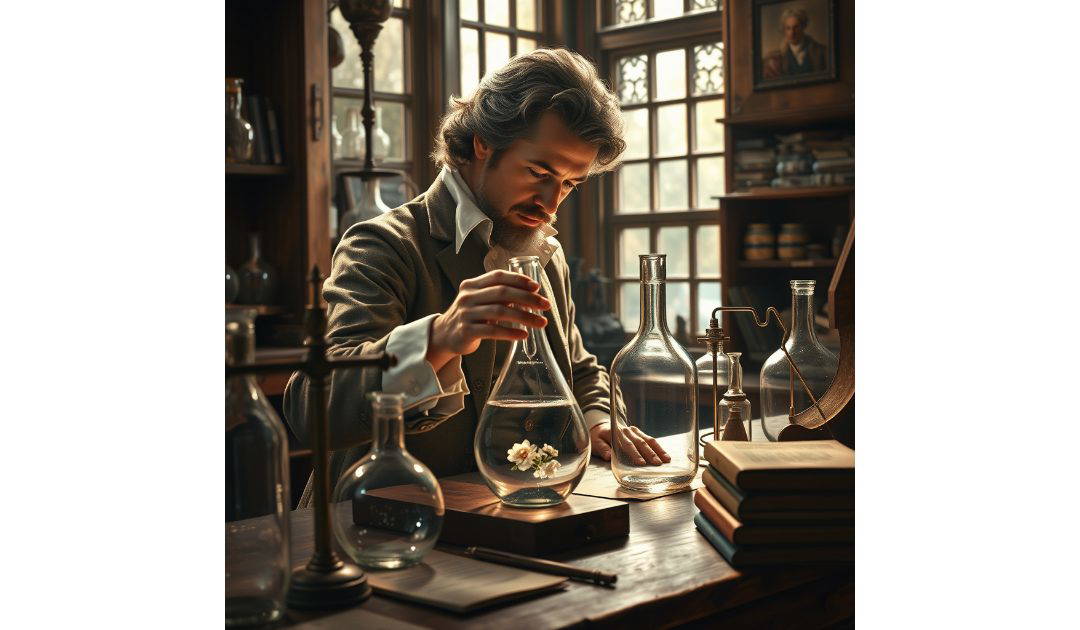Antoine Lavoisier was guilotined on the 8th of May, 1794, during the French Revolution. In the annals of scientific history, few figures have left as profound an impact as Antoine Lavoisier. Often revered as the ‘Father of Modern Chemistry,’ Lavoisier’s contributions laid the foundational principles of chemistry, transitioning it from a qualitative to a quantitative science. His pioneering work during the late 18th century not only revolutionised the field but also intertwined with the broader Enlightenment movement, reflecting the era’s spirit of inquiry and rationality.
Born on the 26th of August 26, 1743, in Paris, France, Antoine-Laurent Lavoisier hailed from a wealthy family. This affluence afforded him the luxury of a comprehensive education, where he pursued studies in law, despite his burgeoning interest in the sciences. Lavoisier’s academic prowess quickly became evident, receiving a gold medal from the French Academy of Sciences for his work on urban street lighting in 1766.
Lavoisier’s career took a significant turn when he became a member of the Ferme Générale, a private tax collection agency. Despite the controversies surrounding this role, it provided Lavoisier with the means to fund his scientific pursuits. His financial resources allowed him to build a state-of-the-art laboratory, which became the epicentre of his groundbreaking research.
Among Lavoisier’s most notable achievements was his role in the chemical revolution. Prior to his work, the phlogiston theory dominated scientific thinking. This now-debunked idea posited that a fire-like element, phlogiston, was released during combustion. Lavoisier’s methodical experiments on combustion and respiration debunked this theory, proving that oxygen, a newly identified element, was crucial to these processes. By meticulously weighing substances before and after combustion, Lavoisier demonstrated the conservation of mass, a principle that would become a cornerstone of modern chemistry.
In 1789, Lavoisier published “Traité Élémentaire de Chimie” (Elementary Treatise on Chemistry), a seminal work in chemical literature. In the treatise, Lavoisier presented a new chemical nomenclature, advocating for a systematic approach to naming chemical substances. This not only clarified chemical communication but also laid the groundwork for the modern periodic table. The treatise, often considered the first modern chemistry textbook, encapsulated Lavoisier’s vision of chemistry as a quantitative science.
Lavoisier’s scientific acumen extended beyond chemistry. He was deeply involved in various public projects, such as improving agricultural productivity, developing the metric system, and reforming French finance. His holistic approach to science and society reflected the Enlightenment ethos of rational inquiry and progress.
However, Lavoisier’s fortunes were irrevocably altered by the French Revolution. His association with the Ferme Générale, perceived by many as a symbol of oppressive taxation, made him a target. Despite his scientific brilliance and contributions to the state, Lavoisier was arrested during the Reign of Terror. On the 8th of May 8, 1794, Antoine Lavoisier was executed by guillotine, a tragic end for a man who had given so much to his country and humanity.
Lavoisier’s legacy, however, endured far beyond his lifetime. His work fundamentally altered the landscape of chemistry, transforming it into a precise and experimental science. The principles he established continue to underpin chemical research and education to this day. Moreover, Lavoisier’s emphasis on measurement and accuracy influenced scientific methodology across disciplines, underscoring the importance of empirical evidence in the pursuit of knowledge.

